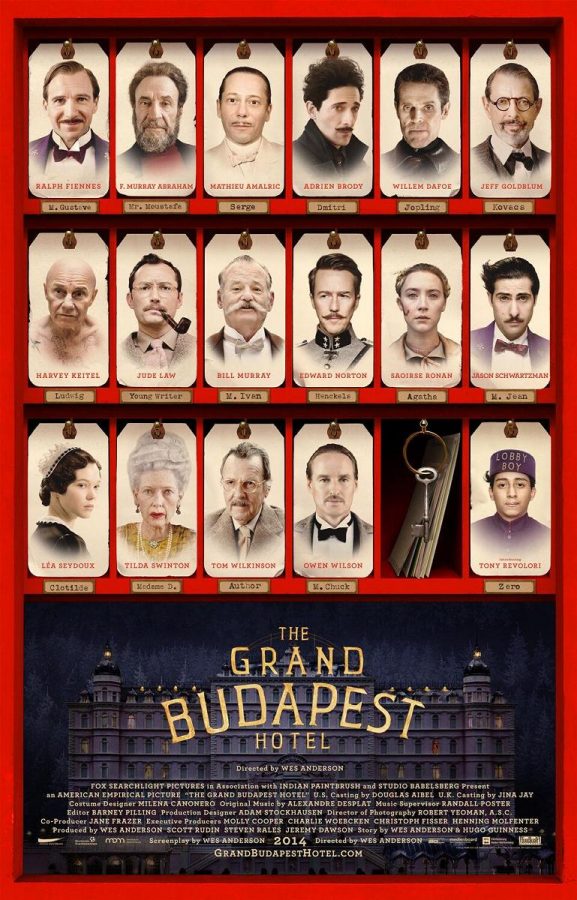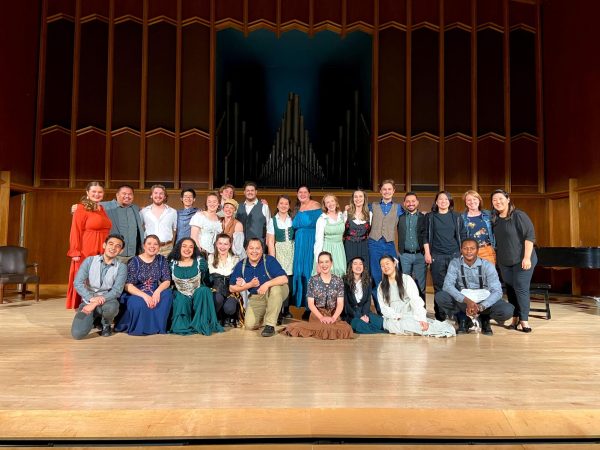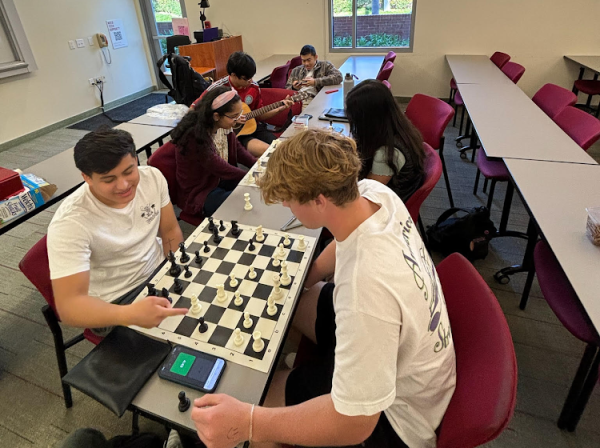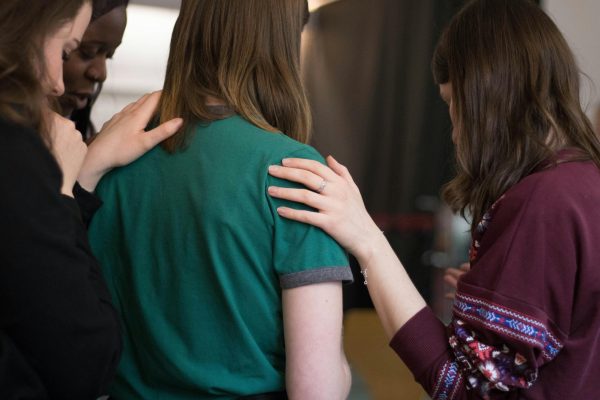Wes Anderson pulls all the stops for a loud adventure in ‘The Grand Budapest Hotel’
The latest film from quirky director Wes Anderson pokes fun at history.
March 12, 2014
Wes Anderson takes shenanigans very seriously. The writer and director has bred love ‘em or hate ‘em films, and chances are you’ve already made up your mind about his newest fabrication, “The Grand Budapest Hotel.” So rejoice all you Wes Anderson fanatics, his eighth feature’s crafted with a meta self-awareness: This is the most Wes-Andersony Wes Anderson film yet — but at the same time, it’s not.
HISTORY BEHIND THE "HOTEL"
There is still the profound melancholy draped in wondrous colors with the Saturday morning cartoon experience. But gone are the classic pop songs between minimal, understated lines. This film is densely layered, spinning wall-to-wall dialogue between the meticulously framed symmetry expected from Anderson. This who-done-it caper — with a dabble in the war film and heist flair — happens in a zany world reeling at frantic speeds. But like all Wes Anderson movies, it invites you to watch it on its own terms.
Starting in 1932, The Grand Budapest Hotel sits upon a mountain top flanked by a painted background of the charming Zubrowka landscape. The hotel is curated by the devoted Monsieur Gustave (the marvelous Ralph Fiennes) who takes on Zero (first timer Tony Revolori) as his lobby boy protégié. Zero watches Gustave in purple tailcoats flirt with and bed the hotel’s blond golden agers.
When one such wrinkly customer (Tilda Swinton) is poisoned, Gustave is willed a priceless painting “Boy With Apple” inciting vengeful jealously by the deceased's oldest son (Adrien Brody) and suspicion by the local authorities (Edward Norton). Here Anderson launches a manic, escalating story filled with art thievery, jailbreaks, pastry recipes, gunfights, monastery rendezvous and stop motion ski slope chases.
“Budapest” is a Russian nesting doll of stories, shifting between three timelines — each with their own aspect ratio. An author (Tom Wilkinson) in 1985 recounts his meeting with Zero in the ‘60s, who further reminisces about his adventures with Gustave.
The over-the-top characters are played by a shotgun blast of name drops, both new and familiar to Anderson’s films: F. Murray Abraham, Jude Law, Jason Schwartzman, Jeff Goldblum, Mathieu Amalric, Willem Dafoe, Harvey Keitel, Bob Balaban and Owen Wilson — with many of them sporting facial hair as excellent as the next.
19-year-old Saoirse Ronan plays Agatha, the pastry baker and Zero’s sweetheart with a birthmark shaped like Mexico. And Bill Murray shows up in “The Society of the Crossed Keys” sequence, a montage of secretly consorting hotel concierges that I could have watched for hours.
A "WHIRLWIND OF MACABRE COMEDY"
Anderson also rounded up his usual powerhouse team behind the camera. No inch of screen is left vacant as Robert Yeoman tilts and tracks his camera through Adam Stockhausen’s over-stuffed production design. Composer Alexandre Desplat’s boisterous and bouncy score breathes heavy over the fictional, eastern European landscapes. Every second is teeming with aesthetic merriment for the eyes and ears.
The script, co-written with Hugo Guinness, is a whirlwind of macabre comedy that isn’t for everyone — although it’s the most ridiculous movie you’ll see all year. But the blitzkrieg of pregnant melodrama and grandiose playtime would normally sum to diddly if not for the human pang Anderson brings through his deeply flawed — but insatiably charming — characters. The film maintains a fondness for the past that accepts wounds and all. It looks at times gone by, full of pain and adventure, through a crippled and nostalgic eye, only to laugh, cry and love.
Once again, Wes Anderson speaks his unique, cinematic voice. Like a child with their toys, he molds intricate fantasies and gives them life. He opens up these bombastic, heavy-hearted worlds and invites you to love them. For those that keep up with “The Grand Budapest Hotel,” the reward is an utter delight.







